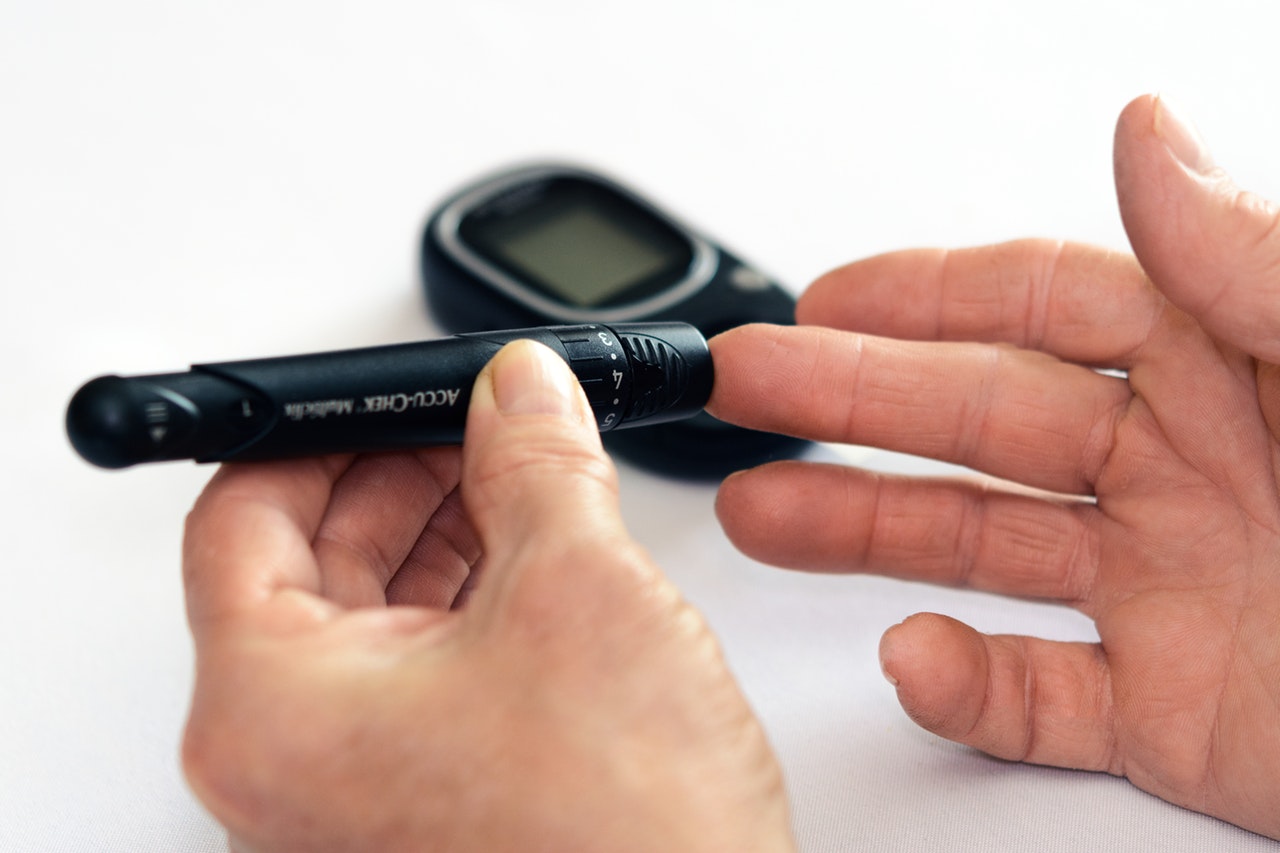
What is Diabetes?
Diabetes is a chronic condition where the body cannot produce or properly use insulin, a hormone made by the pancreas that helps sugar (glucose) enter the body’s cells to be used for energy. Without enough insulin or effective insulin action, glucose builds up in the blood, which can lead to serious health problems affecting blood vessels, nerves, heart, eyes, and kidneys.
Request an AppointmentTypes of Diabetes
Type 1 Diabetes
- Often diagnosed in children or young adults (also called juvenile diabetes)
- Caused by an autoimmune attack on insulin-producing cells in the pancreas
- Body produces little to no insulin
Type 2 Diabetes
- Most common form, usually preventable
- Body produces insulin but cannot use it effectively (insulin resistance), and production may decrease over time
- Influenced by age, obesity, and family history
Prediabetes
- Blood sugar levels are higher than normal but not high enough for diabetes diagnosis
- Increases risk of developing type 2 diabetes
- Often managed by weight loss and regular exercise
Gestational Diabetes
- Occurs during late pregnancy due to hormonal changes causing insulin resistance
- Usually resolves after delivery but raises risk for future diabetes
- Can affect baby’s birth weight and glucose levels
Symptoms of Diabetes
Type 1 and Type 2 share many symptoms, including:
- Frequent urination
- Increased thirst
- Excess hunger
- Fatigue
- Unusual weight loss (more common in type 1)
- Blurry vision (more common in type 2)
- Frequent infections or slow-healing wounds (type 2)
- Tingling or numbness in hands or feet (type 2)
Some people with type 2 diabetes may have no noticeable symptoms.
Risk Factors
Type 1 Diabetes
- Presence of autoimmune antibodies
- Family history
- Environmental triggers
Type 2 Diabetes and Prediabetes
- Older age
- Overweight or obesity
- Physical inactivity
- Family history
- Certain ethnic backgrounds (Black, Hispanic)
- History of gestational diabetes or polycystic ovary syndrome (PCOS)
- High blood pressure or abnormal cholesterol levels
Gestational Diabetes
- Age over 25
- Overweight before pregnancy
- Family history of diabetes
- Previous gestational diabetes
- Belonging to certain ethnic groups
Diagnosis
Tests include:
- Random blood sugar test
- Fasting blood sugar test
- Oral glucose tolerance test
- Urine tests
- Glucose challenge test for gestational diabetes
Treatment
General
- Healthy diet
- Maintaining healthy weight
- Regular physical activity
Type 1 Diabetes
- Insulin injections or insulin pump therapy
- Frequent blood sugar monitoring
- Carbohydrate counting
Type 2 Diabetes
- Lifestyle changes (diet, exercise)
- Blood sugar monitoring
- Oral medications and/or insulin
- Treatment of related conditions like high blood pressure and cholesterol
Gestational Diabetes
- Healthy diet and exercise
- Blood sugar monitoring
- Insulin or oral medication if needed
Complications of Diabetes
If poorly managed, diabetes can lead to:
- Nerve damage
- Heart disease and stroke
- Kidney failure
- Vision loss and eye damage
- Foot, skin, and bone problems
Summary
Diabetes requires ongoing management and lifestyle commitment to prevent serious complications. Early diagnosis, proper treatment, and healthy habits are key to living a healthy life with diabetes.
